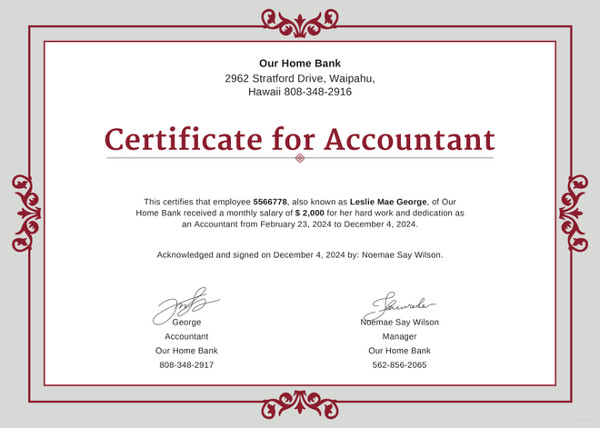
Firstly, these codes of conducts outline important functional areas that certified bookkeepers are responsible for fulfilling. Similar components are seen throughout most of these codes of ethics or codes of conduct, however.

#BOOKKEEPING CERTIFICATION CODE#
Possession of at least one year, or 2,000 hours, of bookkeeping or accounting experience is also required for licensure or certification.īookkeepers must commit to adhering to a code of conduct set forth by the licensing or certifying organization which may vary from one organization to the next. Also included in the certification or licensure process is a commitment on the behalf of the bookkeeper to adhere to a code of conduct or ethics set forth by the professional organization. The standardized examination is one of the more well-known components of the licensure or certification processes. The process is multifaceted so that it can accurately and precisely evaluate on many dimensions of competency. Obtaining your Certified Public Bookkeeper (CPB) license provides you with valid proof that you possess the knowledge, skills, experience, and ethical competencies required for a position as a bookkeeper. The following text highlights the licensure process, the code of ethics, and continued education for maintaining your certification. Keeping abreast of the latest developments in the bookkeeping field is extremely important, and this can be facilitated by obtaining and maintaining licensure or certification.

Many individuals choose to obtain licensure or certification to gain a professional edge on those competing for similar jobs. Licensure and certification from one of these reputable professional associations communicates to clientele that a bookkeeper possesses the necessary skills to successfully provide them with bookkeeping services.

In an attempt to protect public interest, professional organizations attempt to ensure bookkeepers are skilled and adept at providing quality and ethical services.


 0 kommentar(er)
0 kommentar(er)
